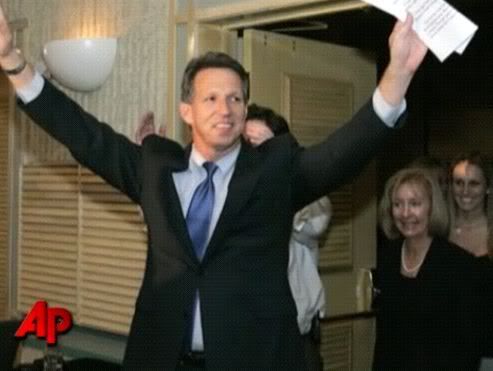The skilled practitioner of “up-close” magic knows that the secret of success is misdirection. “Observe that there is nothing in the top hat,” the illusionist will announce while he grabs the rabbit hidden under the table. When done well, the audience member not only doesn’t notice the misdirection, he doesn’t even know he was the victim of the sleight of hand.

St. Louis Cardinals fan doing his bit to defend the English language
The Republican Party has learned this lesson well, and, in recent years, it has perfected the art of electoral misdirection. This involves utilizing state initiative and referendum laws to place controversial social issues on the ballot. The advantage is twofold: it drives social-values voters to the polls who might otherwise not be motivated enough to vote, and it forces the particular issue into the forefront of the other campaigns, which often places liberal or progressive candidates into the uncomfortable position of having to take a stand on a contentious and potentially divisive issue.
Paradoxically, the perfect issue for this kind of ballot initiative is one that, because it involves a constitutional right, can’t be changed by a ballot initiative. That way, win or lose, the issue is thrust into the center of the political discourse while the party backing the initiative isn’t responsible for actually doing anything about it. Abortion is, in this respect, the perfect social values ballot measure, and three states have abortion initiatives on the ballot for the 2008 election, including South Dakota, where conservatives were left crying “do over!” after suffering a surprising defeat in 2006.
When it comes to the mother of all misdirections, the GOP hit the jackpot in 2004 when it backed eleven statewide referenda to ban gay marriage. All eleven passed.
Continue Reading »

 Everyone’s favorite
Everyone’s favorite 




